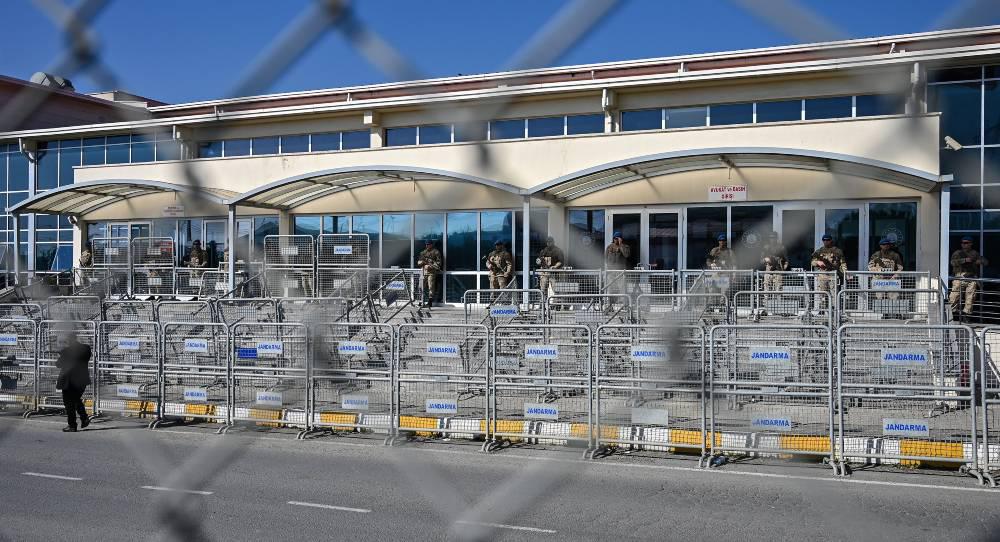From the beginning, the Gezi trial has been a political trial of the worst kind, a symbol of the abysmal dismantlement of the rule of law in Turkey, and an epitome of the leadership’s never-ending crushing of individual freedoms as a tool to assert political dominance.
The defendants in this baseless trial are accused of masterminding the emblematic 2013 Gezi Park protests in Istanbul in an attempt to overthrow the Turkish government.
With the acquittal on February 18, 2020, of nine defendants, after a requested “aggravated life sentence” (life imprisonment without the possibility of parole) for Osman Kavala, Mücella Yapıcı, and Yiğit Aksakoğlu, there was a brief moment of optimism.
But the immediate rearrest a few hours later of Osman Kavala, a businessman and human rights activist, under a different motive—that of “attempting to overthrow the constitutional order” through the July 2016 military coup attempt—wiped out the optimism, isolating Turkey further.
It was clear from the beginning that the Gezi trial was faked.The indictment, which came sixteen months after Kavala’s arrest in October 2017, provided absolutely no evidence of wrongdoing, let alone criminal activity such as attempting to overthrow the government.
Airlines tickets, telephone intercepts, and pictures of visitors have been used as evidence. These spurious charges were analyzed in the Human Rights Watch assessment of March 2019 and in the European Court of Human Rights (ECHR) judgment of December 2019.
Moreover, the Gezi trial hearings were consistently handled unfairly: requests for hearing witnesses and examining critical documents denied, time for defense denied, lawyers and audience forcibly expelled from the courtroom, hasty proceedings.
Finally, in the past few weeks, the penal court had accelerated the proceedings in order to spare the government from having to answer the judgment of the ECHR.
The judges’ acquittal of the defendants on February 18 was a political solution to avoid having to implement the due process of law—in time before the March 10 deadline set by the Strasbourg court.
Kavala’s rearrest later on the same day shocked many Turks and outside observers.
The German foreign ministry reacted: “We are aghast at the re-arrest of Osman Kavala, right after his acquittal. We call for swift clarification in compliance with all rule of law standards to which Turkey has committed.” But the move is consistent with Ankara’s position.
In November 2018, before any indictment had been issued, the president of Turkey designated the culprits and attributed the responsibility for an international plot against the country to “the famous Hungarian Jew, George Soros” and to the “Turkish Soros,” Osman Kavala. And on February 19, 2020, the Turkish president declared that the acquittal was a “maneuver.”
From an EU standpoint, the rule of law in Turkey is still being dismantled day after day. The issue for European leaders is how to factor this democratic decline in their overall relationship with the country.
Since January 2018, several European leaders had pleaded with Turkey’s president for clemency in political trials, but to no avail: they were told that this was “terrorism” and they should leave it to him.
Beyond individual cases, the steady dismantlement of rule of law in Turkey creates serious problems for European businesses as well, since there is no predictability left in the judicial system. Important economic decisions, such as Volkswagen’s large investment in Turkey, have been put on hold due to security and rule-of-law considerations.
An important consequence of the absurd rearrest of Kavala will be to prevent progress on EU-Turkey trade and investment matters, the only area where progress was feasible. The modernization of the EU-Turkey Customs Union and increased direct investment from Europe, two vital areas for Turkey’s economic future, are in deadlock again. Whatever leniency some European leaders wanted to show Turkey, this avenue is closed again. Their parliaments will not buy it, and economic actors will think twice before venturing into risky grounds.
European governments, parliaments, and investors wanted to see a lasting trend toward a decent level of rule of law that would allow them to change their positions. For a few hours on February 18, they thought there was a positive signal from Ankara—until they realized the acquittal was only a stunt to avoid a difficult exchange with the ECHR.
It is another sign of Turkey’s disdain for its own democratic commitments, as illustrated more generally in the latest report from the Council of Europe’s human rights commissioner.
Internationally, there are even more worrying signs. Many of the recent initiatives from Ankara have a common thread: a hostile narrative toward the EU combined with unilateral moves meant to create new realities on the ground.
In the Eastern Mediterranean, unilateral initiatives by Turkey to change maritime boundaries will not go down unchallenged, nor will gas drilling operations around Cyprus.
In Libya, Ankara’s military support to the Government of National Accord in Tripoli runs against the spirit and letters of recent international agreements that prohibit external support to either of the two opposing forces. Its intervention is not only opposed by Moscow but will soon be under check from the EU’s arms embargo monitoring operation.
Among the many issues where Turkey is isolating itself from its outside partners, which include the EU, the United States, NATO, the Council of Europe, Russia, and international economic operators, the ever-present conspiracy theories will not solve the country’s difficulties, they will simply isolate it further. Trade and investment are a case in point.
As for the European Union, Turkey’s initiatives, especially the Kavala case, require unity and steadfastness. The Special European Council summit on February 20 provides an opportunity for Europe’s leaders to make the case for rule of law in Turkey and signal the limits of Ankara’s disruptive actions.
As tempting as it may seem, turning the other cheek is not a policy fit for such grave circumstances.







